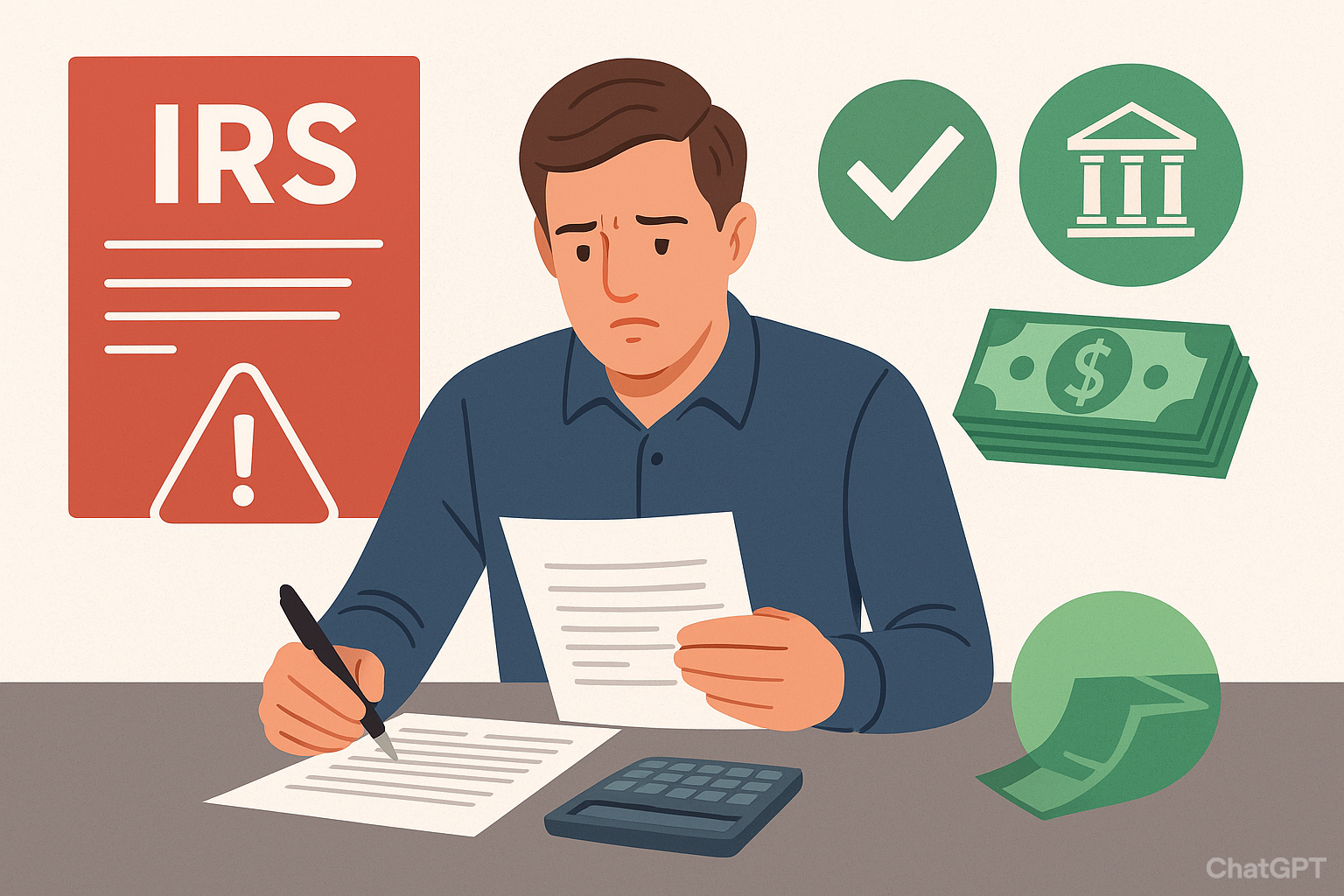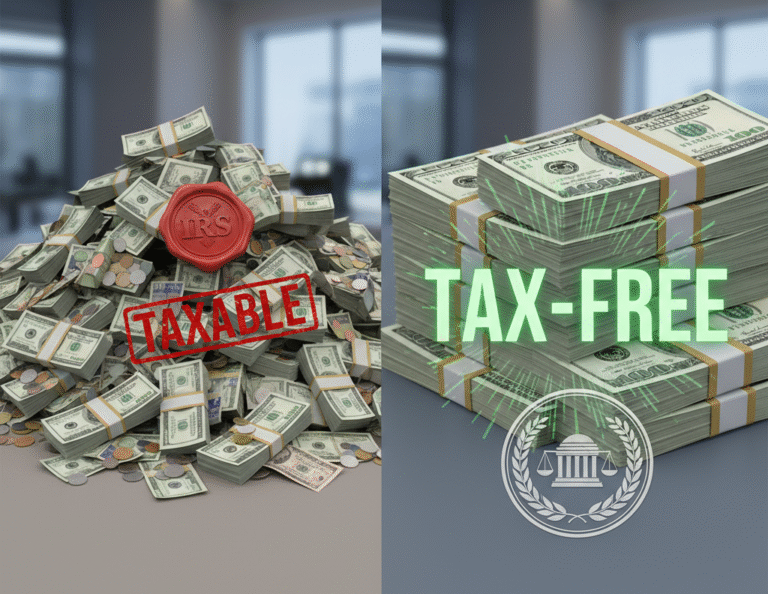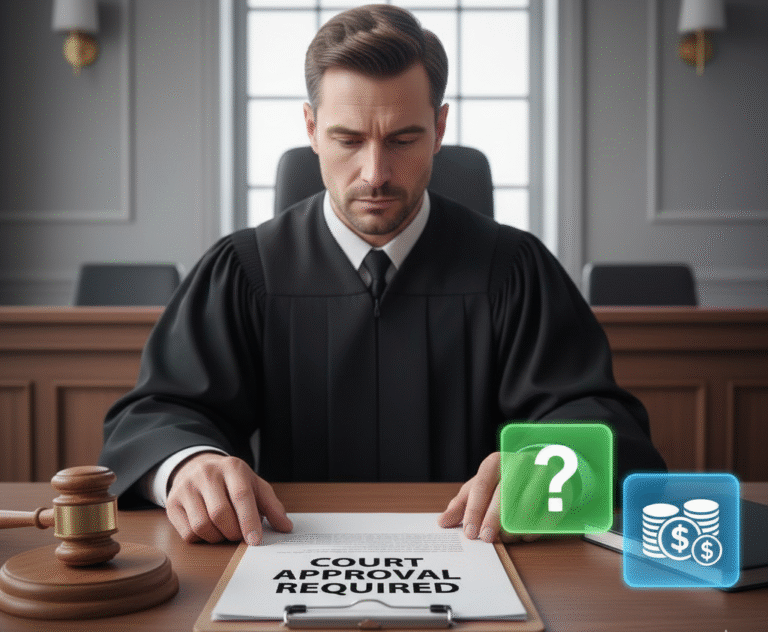Structured settlements were originally created as a way to provide long-term financial security for people who received compensation from lawsuits, personal injury claims, or other legal settlements. Instead of receiving one large lump sum, recipients are paid over time in scheduled installments.
But what happens when someone decides to sell their structured settlement payments for immediate cash? The financial implications are clear—you gain liquidity. However, the tax consequences are less obvious and often misunderstood.

This comprehensive 2025 guide will break down federal tax laws, state-level rules, IRS guidelines, and potential deductions, so you know exactly how taxes may (or may not) affect your structured settlement sale.
1. Why Tax Rules Matter in Structured Settlement Sales
Taxes can eat away a significant portion of your proceeds if you don’t understand the rules. While structured settlements are typically tax-free when paid in installments, selling them for a lump sum introduces a different layer of complexity.
- Regular payments from personal injury settlements are generally not taxable.
- Selling payments may trigger different tax considerations, depending on the origin of your settlement, the state you live in, and how the transaction is structured.
Understanding this distinction is the key to avoiding unexpected IRS bills.
2. Federal Tax Laws on Structured Settlements
The Internal Revenue Code (IRC) Section 104(a)(2) provides that personal injury settlements are not considered taxable income. This means if you’re simply collecting your payments, you owe nothing in federal income tax.
But when you sell your structured settlement:
- The lump-sum amount you receive is usually treated as a discounted value of future payments.
- The discount applied by factoring companies is not considered taxable “gain” but rather the fair market exchange of your right to payments.
- In most cases, you still won’t owe federal income tax on the proceeds, provided your settlement was for personal injury or wrongful death.
⚠️ Exception: If your structured settlement came from a non-personal injury case (such as employment disputes or contract claims), the tax rules can differ, and you may owe federal income tax.
3. State Taxes and Structured Settlement Sales
Each U.S. state has its own Structured Settlement Protection Act (SSPA), requiring court approval before any sale can go through. Along with this, some states impose state income taxes on lump-sum payments, while others do not.
- No state income tax states: Florida, Texas, Nevada, Washington.
- High-tax states: California, New York, New Jersey.
Before selling, it’s crucial to check whether your state applies any tax on lump-sum settlements.
4. IRS Guidelines and Reporting
The IRS does not usually require recipients to report structured settlement payments from personal injury cases as income. However, when you sell, the factoring company may issue a 1099 form if they classify the transaction as taxable.
- If you receive a 1099-MISC or 1099-B, consult a tax professional immediately.
- Most sellers of personal injury settlements won’t need to report proceeds as taxable income, but mistakes in reporting can raise red flags.
5. Capital Gains vs. Income Tax Treatment
One common misconception is that selling a structured settlement can trigger capital gains tax. In most cases, this is not true. The IRS sees your sale as a conversion of an existing right into cash, not as a gain or profit.
👉 Example:
- You’re owed $100,000 over 10 years.
- A company offers you $60,000 today.
- That $60,000 is not a “profit,” it’s simply a discounted exchange.
Thus, no capital gains tax applies in standard structured settlement sales.
6. Common Tax Scenarios
✅ Non-Taxable Situations:
- Selling payments from personal injury or wrongful death settlements.
- Selling only part of your settlement and continuing to receive some payments.
⚠️ Potentially Taxable Situations:
- Selling settlements related to employment lawsuits.
- Selling payments awarded for punitive damages (these are generally taxable).
- Structured settlements from contract disputes or business lawsuits.
7. How to Minimize Tax Risks
Here are steps to avoid unnecessary tax burdens when selling:
- Work with a tax advisor before agreeing to a sale.
- Ask the factoring company how they report sales to the IRS.
- Keep all court documents showing your settlement origin.
- Sell only what you need – partial sales may be safer and reduce tax confusion.
8. Practical Example
Imagine you received a $500,000 personal injury settlement, structured to pay $25,000 annually for 20 years. After 5 years, you sell the remaining 15 years of payments to a factoring company for $250,000.
- Federal tax: Likely zero, since it’s from personal injury.
- State tax: Depends on your residence.
- IRS reporting: You may not need to file it as income, but consult a tax advisor.
9. Key Takeaways
- Structured settlements for personal injury and wrongful death remain tax-free, even if sold.
- Some non-injury settlements may trigger tax obligations.
- Always check your state tax laws.
- Consult a CPA or tax attorney before completing a sale.
Selling your structured settlement can be a powerful way to unlock cash, but you need to be fully aware of the tax implications. While most personal injury settlements remain tax-free under federal law, exceptions exist, and state taxes can complicate the process.
Before moving forward, always consult both a lawyer and a tax advisor. Understanding your tax responsibilities ensures you won’t face unpleasant surprises from the IRS down the road.




